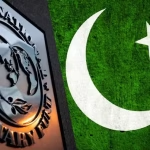(AFP) – Before new penalties on Moscow take effect, major oil-producing nations headed by Saudi Arabia and Russia appear ready to maintain their existing output levels at a summit on Sunday.
The Organization of the Petroleum Exporting Countries (OPEC), which has 13 members, will reconsider its agreement to reduce output by two million barrels per day by consulting with 10 more oil-producing countries, including Russia. The OPEC+ videoconference will begin on Sunday at 1100 GMT.
Along with an EU ban on marine delivery of Russian crude oil, the EU, G7, and Australia agreed on a $60 per barrel price ceiling for Russian oil on Friday. This cap will go into force on Monday or shortly afterwards.
It will obstruct attempts to deprive Moscow of billions of euros by preventing seaborne supplies of Russian petroleum to the European Union, which make up two-thirds of the bloc’s oil imports from that country.
While Ukraine argued the price ceiling could have been set even lower, Russia on Saturday criticised the impending price cap and threatened to halt exports to any nation that accepted the policy.
The key question for OPEC+ is how severely sanctions would affect Russian production.
According to DNB analysts, “the uncertainty for Russian supplies is enormous.” Therefore, OPEC would “strive for a low-key meeting that leaves the current output quotas unaltered.”
a challenging situation
According to OANDA analyst Craig Erlam, the threat by Moscow to halt deliveries to nations that adhere to the price cap would put “some in a very uncomfortable position” because they would have to decide between losing access to cheap Russian crude or coming under G7 sanctions.
According to UniCredit analyst Edward Moya, a policy rollover was indicated by the decision to hold the OPEC+ meeting virtually rather than in person at the Vienna headquarters. However, “deeper oil output cuts” could not yet be ruled out.
The two global crude benchmarks remained close to their lowest level of the year, far from their March peaks, amid economic doom brought on by soaring inflation and worries about China’s weaker energy demand as a result of its Covid-related restrictions.
Brent North Sea oil and its US counterpart, WTI, have both declined in value by more than 6% since the group’s previous meeting in early October.
However, throughout the week, prices rose on rumours that OPEC+ would possibly consider cutting supply even further.
By reducing or threatening to reduce output even further, “OPEC+ could feel pressured to adopt a more aggressive position,” according to UniCredit analyst Edoardo Campanella.
He continued, “Russia might also respond by using its influence within OPEC+ to pressure for additional production cuts in the future, thereby escalating the global energy crisis.









